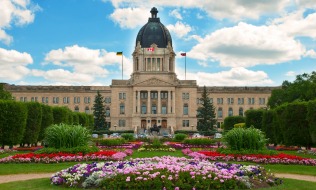

As Saskatchewan’s move to levy the provincial sales tax on insurance premiums takes effect next week, the Canadian Life and Health Insurance Association says the policy “should be immediately reversed.”
“CLHIA believes that Saskatchewan’s imposition of sales tax on insurance products is not good public policy and should be immediately reversed,” said Ron Sanderson, director of policy-holder taxation and pensions. “We similarly discourage other provinces from imposing premium-based taxes.”
Employers with staff in Saskatchewan will see their insurance premiums rise by six per cent under the new tax, which the provincial government announced in its 2017/2018 budget. The change, which takes effect on Aug. 1, will apply to all group benefits plans with life, accident and health insurance policies.
The CLHIA notes taxes on insurance premiums discourage employers from providing employees and their families with disability plans; supplementary health benefits to cover prescription drug, dental, vision and paramedical services; and group life insurance benefits.
Read: Employers urged to prepare for Saskatchewan insurance tax
“Especially for health coverage, the result is that consumers will have reduced protection and will not seek care on a timely basis,” said Sanderson. “And delayed health care means higher health costs. The demonstrated reduction in coverage when such premiums or benefits are taxed means that premium-based taxes actually increase consumers’ reliance on public health and social services, shifting costs to government in excess of the tax revenue generated.”
The comments come as the Canadian Taxpayers Federation weighed in on the issue by commissioning a poll that found a majority of Saskatchewan residents oppose the new tax. The poll found a majority (78 per cent) of respondents oppose the levy.
“Charging the PST on insurance comes with an obvious risk,” said Todd MacKay, Prairie director at the Canadian Taxpayers Federation, in a news release. “Hitting premiums with the PST will run up insurance costs by hundreds of dollars for families and thousands or tens of thousands of dollars for farmers and small businesses. More than a third of Saskatchewanians say they’ll have to reduce coverage or stop renewing some policies, and that means people will have less protection when bad things happen.”
